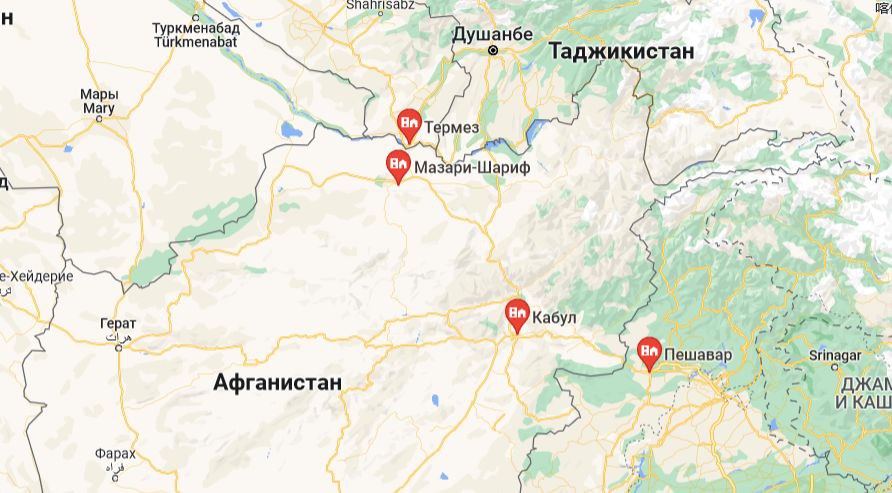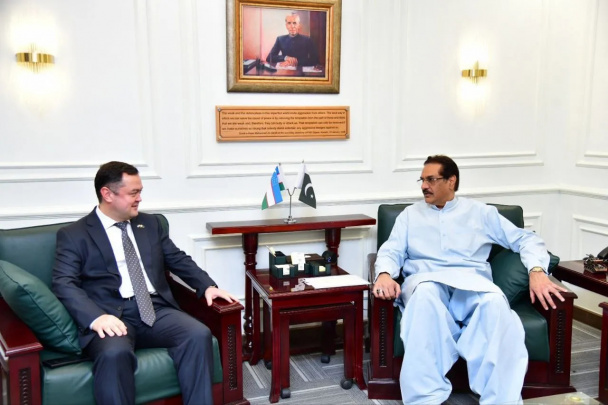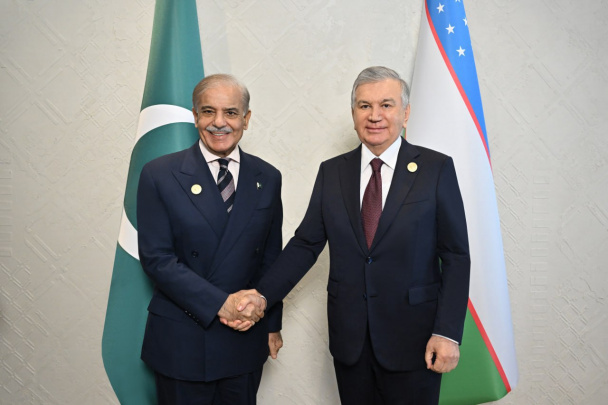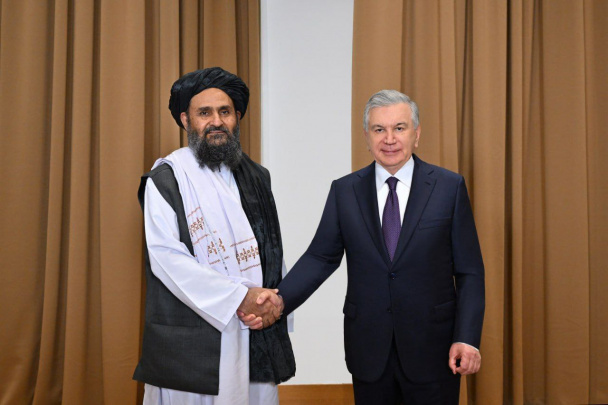Uzbekistan launches construction of Trans-Afghan railway line connecting Termez - Mazar-i-Sharif - Kabul – Peshawar
Uzbekistan has launched the construction of a $5 billion (estimated cost) Trans-Afghan Railway Line project to access Pakistan’s major seaports, which will boost regional connectivity and trilateral trade.

Photo: Google Earth
Once the plan materializes, the region’s landlocked countries will get access to the sea, enhance trade, and save money and time.
Due to Central Asia’s distance from the open sea, railways have a pivotal role to play in the economic planning of these states, especially the double-landlocked Uzbekistan.
On February 2, 2022, Uzbekistan, Pakistan and Afghanistan agreed in Tashkent to a roadmap for the construction of a 600-kilometer-long rail project connecting these three countries (Mazar-i-Sharif-Kabul-Peshawar railroad).
“This Trans-Afghan Railway project is the most economical and shortest route connecting Central Asia with Pakistani ports of Karachi, Gwadar, and Qasim,” said Muhammad Azfar Ahsan, Pakistani Minister of State and Board Chairman of Investment, while speaking at the Trilateral Working Meeting in Uzbek city of Termez.
“The route to Pakistan has received the most attention owing to its feasibility. In this regard, the Termez-Mazar-i-Sharif-Kabul-Peshawar railway project could be a game-changer for the region's future,” he added.
Muhammad Azfar Ahsan underscored that its geography makes Pakistan the shortest, most economical, and easiest land route for Central Asia to access the Arabian Sea.
“Afghanistan is termed the ‘heart of Asia’. It connects different regions, mainly Central Asia, via Tajikistan, Turkmenistan, Uzbekistan, South Asia via Pakistan, and the Middle East, via Iran,” Ahsan said.
Elaborating on the importance of CPEC, he added that the extension could potentially help Afghanistan become part of the Belt and Road Initiative (BRI).
“Connectivity has become a defining feature of the modern economy. Central Asia needs to develop southern trade links to complement existing north, east, and west routes,” Muhammad Azfar Ahsan further said.
He appreciated the Uzbek government for organizing the trilateral meeting to strengthen linkage and connectivity among the participant countries.
Related News

13:28 / 05.07.2025
Uzbekistan and Pakistan discuss new defense industry projects

19:04 / 04.07.2025
Shavkat Mirziyoyev holds talks with Shehbaz Sharif, discusses strengthening Uzbekistan-Pakistan strategic partnership

11:49 / 04.07.2025
Russia officially recognizes Islamic Emirate of Afghanistan, eyes economic cooperation

20:01 / 03.07.2025



